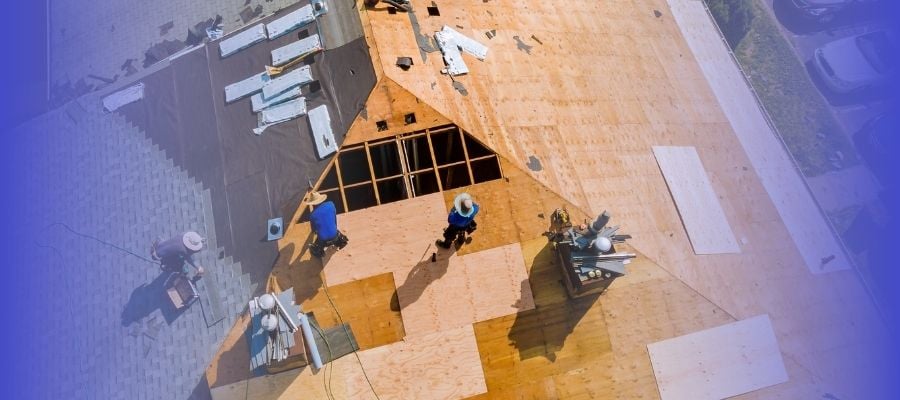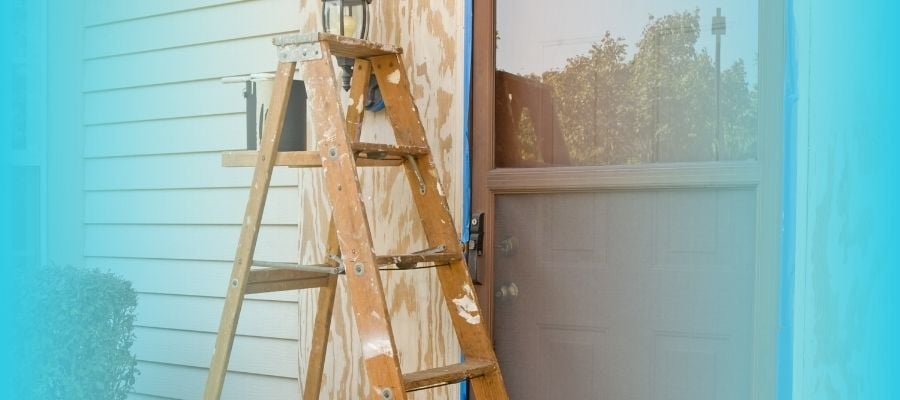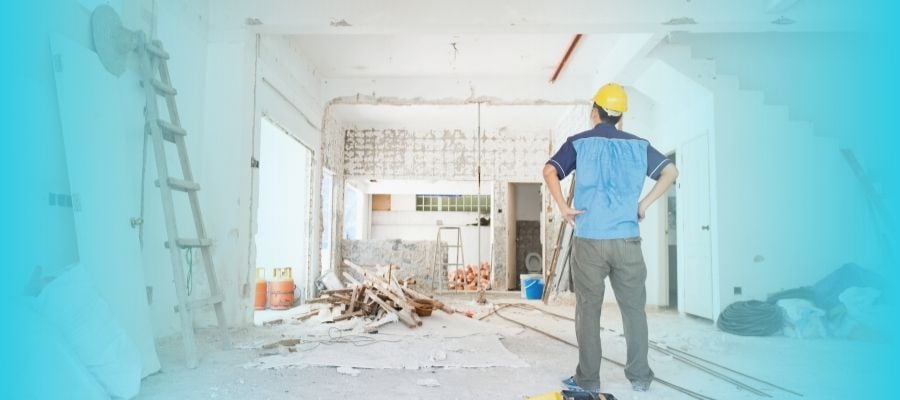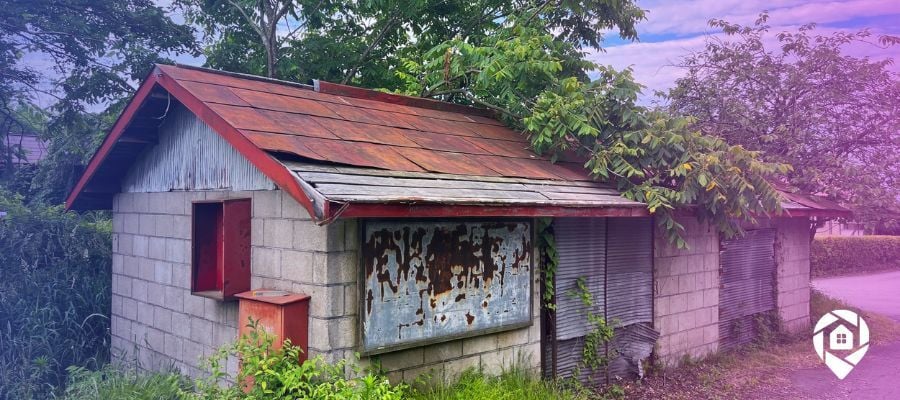
Flipping Houses: How To Flip Into a Fortune and Profit Calculator

Definition
Flipping houses is a strategy in real estate investing where an investor buys properties intending to sell them for a profit. It is a common strategy among real estate investors. This typically involves buying undervalued properties, often needing repair, renovating, or fixing them, and then selling at a higher price.
The profit is made from the difference between the purchase price, renovation costs, and the selling price.

Key Takeaways
- Funding and Budgeting: House flipping requires a significant investment. You need to purchase the property and bear the repair costs. Furthermore, you must account for ongoing expenses like property taxes, utilities, and insurance. Thus, having a detailed budget and a clear understanding of the investment is one of the main issues to consider in house flipping.
- Market Research: The profit from house flipping depends incredibly on the real estate market. You must thoroughly research the market to determine the potential return on investment. This includes understanding the neighborhood, comparable home prices, and the market's overall health.
- Renovation Strategy: Not all renovations will add value to a home. Successful house flippers need to accurately estimate both the cost to repair or renovate a home and the resulting increase in the home's value. This requires a good understanding of what potential buyers are looking for and wisely investing in changes that will increase the home's appeal and value.
How to Get Started Flipping Houses (Step-by-step Guide)
The house-flipping process is nothing to sweat! Here is a quick step-by-step guide to getting started with flipping houses. We will get you ready to flip your first house in no time.
#1 Educate Yourself:
Start by educating yourself about real estate investing and house flipping. Read books, attend seminars or workshops, and explore online resources to learn about the process, market analysis, renovation strategies, financing options, and legal considerations.
#2 Set a Budget:
Determine how much money you can allocate to your house-flipping venture. Consider your own funds, potential loans, or partnerships for financing. It's important to clearly understand your budget limitations and how they will impact your property acquisition and renovation plans.
#3 Research the Market:
Conduct thorough market research to identify potential target areas. Look for neighborhoods with desirable characteristics such as good schools, amenities, transportation access, and increasing property values. Analyze recent sales data, market trends, and competition to make informed decisions about where to invest.
#4 Develop a Business Plan:
Create a detailed business plan that outlines your goals, budget, property criteria, renovation strategies, real estate marketing and sales plans, and projected timeline. A well-thought-out plan will help you stay focused and organized throughout the flipping process.
#5 Find Suitable Properties:
Search for properties that align with your investment criteria. Explore multiple channels, including online listings, real estate agents, auctions, foreclosure databases, and direct marketing. Look for distressed or undervalued properties with the potential for improvement and appreciation.
#6 Analyze Deals:
Perform thorough due diligence on potential properties. Evaluate the property's condition, market value, renovation costs, and potential resale value. Consider hiring a professional inspector or contractor to assess the property's structural integrity and identify any hidden issues.
#7 Secure Financing:
Determine the most suitable financing options for your house flipping project. These may include traditional mortgages, hard money loans, private investors, or personal funds. Research and compare interest rates, terms, and eligibility requirements to choose the best financing solution for your needs.
#8 Renovate Wisely:
Develop a renovation plan that balances cost-effectiveness with the market demand. Focus on improvements that add value and appeal to potential buyers. Obtain multiple quotes from contractors, set a realistic renovation budget, and closely manage the construction process to stay on track.
#9 Market and Sell High:
Once the renovations are complete, develop a marketing strategy to attract potential buyers. Utilize online listings, professional photography, staging, and open houses to showcase the property's features. Set an appropriate sale price based on market analysis, work with a real estate agent, or consider selling the property yourself.
#10 Manage Risks:
Flipping houses involves risks, so it's essential to manage them effectively. Plan for contingencies, account for unexpected expenses and have a backup plan if the property does not sell within your anticipated timeline. Continuously educate yourself and adapt your strategies based on market conditions and lessons learned from each project. Your goal is to make money, not lose money! Just like any investment, a real estate investment has its risks to take into account. But with the right property, purchase price, and execution, your renovation project could build wealth.
How to Find Houses to Flip
- Real Estate Websites: Utilize popular real estate websites and online marketplaces such as Zillow, Redfin, Realtor, and Trulia. These platforms allow you to search for properties based on location, price range, and other criteria. Set up alerts or notifications to be notified when new properties that match your preferences are listed.
- Local Real Estate Agents: Establish connections with local agents who specialize in investment properties or have experience with house flipping. They can provide you with access to off-market or pre-listed properties that may not be available to the general public. A real estate agent also has much experience understanding deals, market valuations, and property value.
- Foreclosure Listings: Check foreclosure listings or consult with foreclosure specialists to identify distressed properties that may be suitable for flipping. Websites like RealtyTrac and Foreclosure provide comprehensive foreclosure information and allow you to search for properties in specific areas.
- Auctions: Attend public foreclosure auctions or short sales in your area. These auctions often offer properties at discounted prices, but they require careful research and preparation. Before participating, familiarize yourself with the auction process, local laws, and potential risks. Auctions are a frequent spot for house flippers.
- Direct Marketing: Develop a targeted direct marketing strategy to reach out to homeowners who may be interested in selling their properties. This can involve sending letters, postcards, or door-to-door canvassing. Look for distressed or vacant properties that indicate potential opportunities.
- Networking: Network with other real estate professionals, investors, contractors, and wholesalers in your area. Attend local real estate meetups, join investment groups, and build relationships within the industry. Often, word-of-mouth referrals and networking can lead to potential property leads.
- Drive or Walk Around: Take a proactive approach by driving for dollars or walking through neighborhoods of interest. Look for signs of distress, such as overgrown lawns, boarded-up windows, or properties needing repairs. You can then research ownership information and reach out to the owners directly.
- Online Forums and Social Media: Participate in real estate forums or join social media groups dedicated to real estate investing. These platforms can provide insights, tips, and potential property leads shared by other investors or industry professionals.
- Wholesalers: Connect with real estate wholesalers who specialize in finding distressed properties and selling them at a discounted price. Wholesalers can act as intermediaries and help you identify potential deals that fit your flipping criteria.
- Public Records: Access public records, such as tax assessments and property records, through local government websites or county clerk offices. These records can provide valuable information about ownership, property history, and potential leads.
Is It a Good Idea to Flip Houses?

While flipping houses can provide profits and active income, it also comes with comparable financial risk, time and effort, and tax challenges. Our recommendation is to weigh these risks before jumping into a house-flipping business. Consulting with experts about market volatility and external challenges is always a good idea.
Pros
Profit Potential: The primary motivation for flipping houses is the potential for substantial profits. If you can successfully identify undervalued properties, make cost-effective renovations, and sell at the right time, you can earn significant returns on your investment.
Active Income: Flipping houses can provide an active source of income. Unlike passive investments like stocks or real estate rentals, where income is generated over time, flipping houses allows you to earn a lump sum profit upon sale.
Creativity and Personalization: Flipping houses allows you to exercise your creativity and design skills. You have the freedom to personalize and upgrade the property according to your vision, potentially adding value and attracting buyers.
Skill Development: Flipping houses can be a learning experience that enhances your knowledge of real estate, construction, finance, negotiation, and project management. It can be a valuable opportunity to acquire new skills and broaden your expertise.
Market Stabilization: By renovating and selling properties, flippers can contribute to stabilizing and improving neighborhoods. Dilapidated houses are revitalized, increasing investment property values in the area.
Cons
Financial Risk: Flipping houses involves financial risk. If the property does not sell quickly or at the expected price, you may experience financial losses. Fluctuating real estate markets, unexpected construction costs, and delays can all impact profitability.
Time and Effort: Flipping houses requires significant time and effort. You must conduct thorough research, find suitable properties, coordinate renovations, manage contractors, and oversee the selling process. It can be a demanding and time-consuming endeavor.
Market Volatility: Real estate markets can be volatile, and there is a level of uncertainty associated with timing the sale of a flipped property. Economic conditions, interest rates, and local market factors can all influence the demand and sale price of the property.
Renovation Challenges: Renovating properties can present unforeseen challenges. Structural issues, permit delays, unexpected repairs, and budget overruns are common pitfalls that can erode profits and cause project delays.
Tax Implications: Flipping houses can have tax implications. Depending on your jurisdiction, profits from house flipping may be subject to capital gains taxes, which can impact your overall profitability.
Is It Still Profitable to Flip Houses?

Yes! Flipping houses can be profitable if executed effectively and under favorable market conditions. Here are some factors to consider when evaluating profitability:
Market Conditions
The state of the real estate market plays a significant role in house flipping profitability. In a strong seller's market with high demand and limited inventory, there may be opportunities to sell properties quickly and at higher prices, potentially leading to greater profits. On the other hand, a buyer's market with more inventory and lower demand can make it harder to sell properties and achieve desired profit margins.
Purchase Price
Buying properties at a favorable price is crucial for profitability. Identifying undervalued properties, negotiating effectively, and conducting thorough due diligence are essential to acquiring properties with good potential for appreciation.
Renovation Costs
The cost of renovations and repairs is a critical factor in determining profitability. Accurate budgeting and cost management are necessary to prevent renovation expenses from exceeding the potential increase in property value. Unexpected costs or oversights can eat into profits.
Holding Costs
Flipping houses typically involves holding the property for a certain period of time, during which you will have expenses such as mortgage payments, property taxes, insurance, and utilities. Minimizing holding costs and selling the property quickly can help improve profitability.
Selling Price
The sale price of the flipped property is a significant factor in determining profitability. It is crucial to assess the local market accurately, set a competitive price, and attract potential buyers. Overpricing the property or encountering difficulties in finding buyers can impact profitability.
Competition
The level of competition in the house flipping market can affect profitability. If there are many flippers in the area, it may drive up property prices and increase competition when selling. This can reduce profit margins or make it harder to find suitable properties.
Experience and Expertise
Your experience and expertise in house flipping can impact profitability. Seasoned flippers who have knowledge of the market, construction, and project management are generally better equipped to navigate challenges and maximize profits.
Importance of Flipping Houses
Flipping houses is a critical term in real estate investing because it refers to a lucrative strategy involving buying properties at a low cost, usually in a state of disrepair, renovating them, and then selling them for a profit. This practice is important for a variety of reasons.
Primarily, it allows investors to make substantial gains over relatively short periods compared to other investment methods.
Additionally, flipping houses improves housing stock by transforming outdated or dilapidated properties into appealing homes, benefiting neighborhoods, contributing to community revitalization, and increasing property values.
Explanation of House Flipping

The essence of flipping houses in real estate investing is the purchase of a property at a reduced cost, with the intention of quickly reselling it for a profit. It's a strategy that allows investors to capitalize on market conditions where home values are on the rise or areas where affordable homes can be quickly upgraded to sell at a premium.
The inherent value in this process lies in the potential for rapid financial gain, assuming the perfect alignment of factors like home repairs, carrying costs, and market timing. Flipping houses is not just about quick profit; it's also a method used to rejuvenate neighborhoods and provide quality housing. In many cases, investors tend to purchase homes that are in disrepair or have been neglected.
With some investment in fixing up and modernizing the property, it can often be resold at a higher price point. This not only brings the investor a significant return on their investment but also improves the overall quality of the local real estate market and offers upgraded living spaces for future homeowners.
Therefore, house flipping serves dual purposes: it offers a lucrative investment avenue, potentially contributing to community improvement and development.
Examples
Example 1:
Rhonda, an experienced real estate investor, identifies a dilapidated bungalow listed for sale in a popular neighborhood in her city. Recognizing its potential, she acquires the property for $100,000, which is much lower than other houses in the area.
She then spends another $50,000 renovating and enhancing the house, including restructuring the layout, updating the kitchen and bathrooms, and improving the landscaping around the property.
After renovation, Rhonda sells the house for $200,000, making a considerable profit after deducting her investment and renovation costs.
Example 2:
John, a real estate investor, purchases a foreclosed apartment complex in a favorable location at an auction for a substantially lower price than its market value.
He flips the individual units by renovating and upgrading them to make the property more desirable to potential buyers.
After months of work and sizable investment, he resells the units at their newfound market value, making a substantial profit.
Example 3:
Morgan, a real estate enthusiast, uses her architectural skills to identify undervalued properties with structural potentials that others might miss.
She purchases a mid-century home with a poor design layout for $150,000. Megan redesigns the interior layout, adds extensions, and modernizes the home while preserving its original character.
After spending $75,000 on renovations, she manages to flip the property by reselling it for $300,000, yielding a significant profit.
Profit Calculator
Frequently Asked Questions(FAQ)
Q: What does "Flipping Houses" mean in real estate investing?
A: Flipping houses refers to the process of buying an investment property at a lower price, often in need of repairs, making the necessary renovations, and then selling it at a higher price. The profit is made from the difference between the purchase and selling prices minus the cost of renovations and time.
Q: Do I need lots of money to start flipping houses?
A: While having substantial capital can be beneficial in house flipping, it isn't always necessary. Investors can use various strategies like hard money loans, home equity, or partnering with others to finance a flip.
Q: Is flipping houses considered a risky investment?
A: Like any investment, house flipping does come with a level of risk. Unexpected renovation costs, a downturn in the property market, or difficulty selling the property can lead to financial loss. However, careful planning, research, and expertise can help mitigate these risks.
Q: How long does it usually take to flip a house?
A: The timeline for flipping a house can vary significantly based on the scope of the renovations and the local real estate market. On average, it can take anywhere from 3 months to a year to flip a house.
Q: Can I flip houses as a part-time job?
A: Yes, some investors flip houses as a side job. However, remember that it can be time-intensive, involving finding and buying properties, managing renovations, and selling the property.
Q: Do I need a real estate license to flip houses?
A: No, a real estate license is not mandatory for flipping houses. However, having one can be beneficial as it gives you direct access to market listings and potential savings on commission when buying and selling properties.
Q: What kind of properties are suitable for flipping?
A: Properties in less desirable condition but in good locations typically make good candidates for house flipping. These homes can usually be bought at lower prices, renovated, and then sold to potential homeowners looking for move-in-ready homes in good neighborhoods.
Q: What are the tax implications of flipping houses?
A: Income made from flipping houses is generally counted as capital gains, which can carry a substantial tax burden if the property is not held for a certain period of time. It's important to consult a tax advisor or real estate attorney to understand the potential tax implications.

About David Lecko
David Lecko is the CEO of DealMachine. DealMachine helps real estate investors get more deals for less money with software for lead generation, lead filtering and targeting, marketing and outreach, and acquisitions and dispositions.



